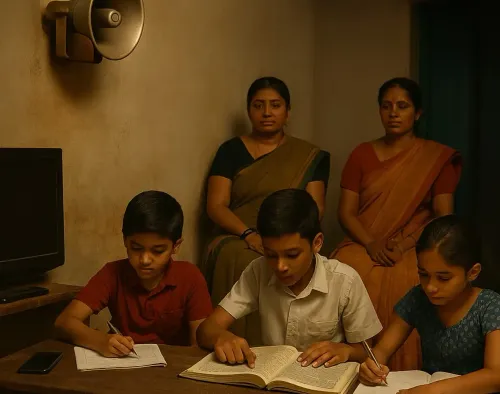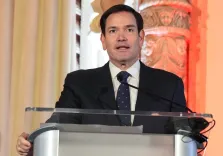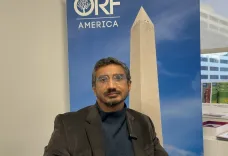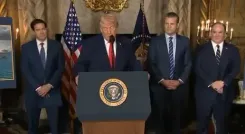UK Scholar: PM Modi's Real-Time Oversight of Major Infrastructure Projects Accelerated Progress in the Last Decade (IANS Interview)
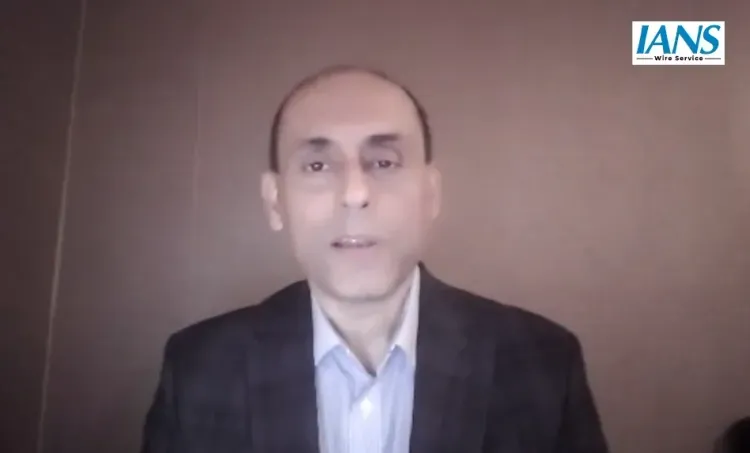
New Delhi, Dec 4 (NationPress) The real-time oversight conducted by Prime Minister Narendra Modi himself has significantly hastened the fulfillment of large-scale infrastructure projects in India and propelled economic expansion in the nation over the last decade, states Professor Soumitra Dutta from Saïd Business School, University of Oxford.
In a detailed interview with IANS, the Dean and Professor expressed, “Thanks to the PRAGATI ecosystem, there is a much greater level of real-time tracking of what is occurring on the ground. Moreover, advanced drone technologies and real-time sensors are utilized within this program to provide data directly to the Prime Minister.”
“This enables him to connect with data and identify challenges in real-time, often during meetings. He fosters a spirit of collaboration for the benefit of India, which is very crucial. This represents a role model behavior change that is essential,” he remarked.
He noted that large infrastructure projects have historically been plagued by delays, budget overruns, and various issues hindering successful execution. The PRAGATI ecosystem has effectively unblocked several significant projects that had been stalled for extended periods.
“For instance, the Brahmaputra River in Assam was long regarded as a challenging river to bridge. The project to construct a bridge with a road and rail connection was first approved in 2002, yet nearly a decade later, progress was minimal,” he explained.
Dutta has co-authored a newly released study titled, “From Gridlock to Growth - How Leadership Enables India’s PRAGATI Ecosystem to Drive Progress.”
Expounding on the study's purpose, he stated, “The objective has consistently been to assess how India's advancements in developing national digital infrastructure have influenced the country's development.”
He emphasized that PRAGATI effectively constructs a comprehensive digital ecosystem of tools, including the Privilege and Project monitoring group, aimed at integrating information agencies to enhance data sharing. However, this alone is insufficient. The PRAGATI ecosystem's success also stems from the Prime Minister's direct engagement and focused attention on key bureaucrats across the central and state governments to address conflicts and resolve issues.
Moreover, it was common to see stakeholders collaborate to resolve issues even prior to reviews, as no one wants to face the Prime Minister and explain why actions were not taken or why coordination failed, he elaborated.
“The Prime Minister's presence and direct involvement exert a degree of pressure on the system, enabling the resolution of previously challenging problems,” he noted.
“The integration of the jam trinity of Jan Dhan-Aadhaar-Mobile has played a pivotal role in establishing a robust platform for India,” he added.
Dutta stated that given the significant government expenditures on infrastructure, PM Modi has actively sought to employ digital tools for real-time monitoring of various infrastructure projects facing difficulties. He has endeavored to unite key leaders from both central and state governments in monthly meetings to tackle the complex issues impeding project execution.
“Research indicates that for every rupee effectively invested in infrastructure, the GDP sees an enhancement of approximately two and a half to three rupees. This 2 to 3 times GDP improvement translates into national development. India aspires to achieve full development by 2047, marking a century since Independence,” he clarified.
In order to realize these aspirations, India must significantly enhance its infrastructure initiatives, extending beyond roads and highways to include social projects like providing water, sanitation, and electricity to villages in remote regions, he asserted.
“What we observe is the necessity of managing these extensive projects that encompass various societal aspects and span multiple regions of the country. Hence, large-scale systemic change is crucial for India to fulfill its national objectives by 2047. The PRAGATI system fundamentally serves as a mechanism for the nation to efficiently accelerate and effectively utilize its resources for executing large-scale systemic transformations,” he concluded.




